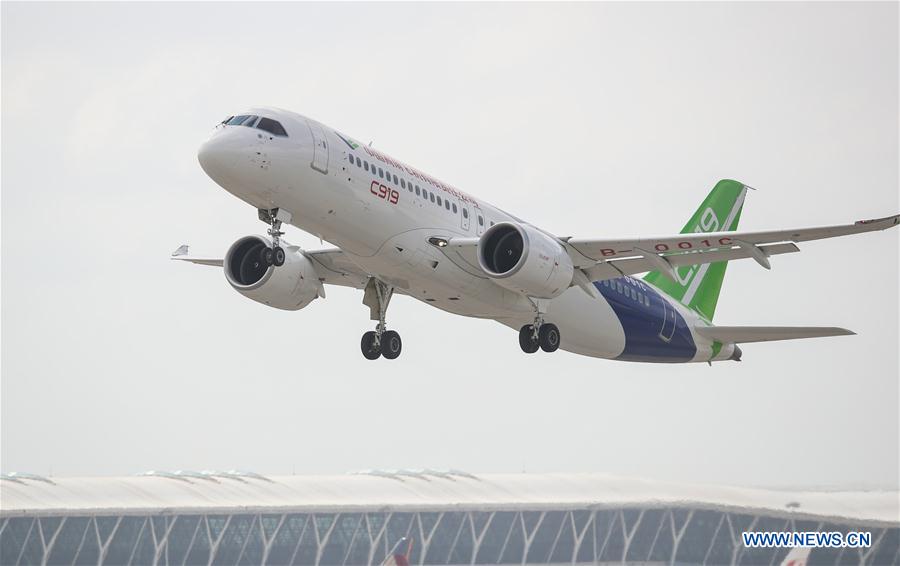China's march accelerates towards technological advancement
- By Rabi Sankar Bosu
 0 Comment(s)
0 Comment(s) Print
Print E-mail China.org.cn, September 17, 2018
E-mail China.org.cn, September 17, 2018

It may sound strange today, but, according to an article published on this very website, as recently as 1900, China had no modern science and technology at all. One startling fact: less than 10 people throughout China had learned calculus.
However, on November 20, 1999, China's first experimental spacecraft "Shenzhou" blasted into space from the Jiuquan Satellite Launch Center in Gansu Province, marking a turning point in China's space history. Then four years later, on October 15, 2003, 38-year-old Yang Liwei became China's first astronaut, creating a legacy 1.3 billion Chinese should be proud of.
Another important date is May 5, 2017, when the passenger jetliner C919 made a successful 79-minute flight debut as a product of China's ambitious aviation industry.
For a country that only 40 years ago was considered backward, the C919's flight symbolized the industrial might of a developing country in seizing the opportunities of the new technological era to break the long-held monopolies of Boeing and Airbus in the global market.
Since the late Chinese leader Deng Xiaoping announced the policy of reform and opening up at the Third Plenary Session of the 11th Central Committee of the Communist Party of China (CPC) in December 1978, China's political, economic, cultural, and scientific and technological developments have gripped world attention.
Today, over 60 percent of China's technologies have reached or are close to the world advanced level, although still lagging in some areas.
In 1995 the Chinese government put forward the strategy of "rejuvenating the nation by relying on science and education." Scientific research institutions, under the stewardship of the CPC and its leaders, have successfully moved the country from a manufacturing-based economy to an innovation-driven, knowledge-based one.
Since the 18th CPC National Congress, the Chinese government has redoubled its investments in nuclear energy, space, high-energy physics, biology and computer and information technologies. According to China's National Natural Science Foundation, the state-led funding increased to US$10 billion in 2015 on basic research, about one-quarter of U.S. federal spending on such research.
The 13th Five Year Plan (announced in March 2015), Robotics Industry Development Plan (April 2016), and Three-Year Guidance for Internet Plus Artificial Intelligence Plan (May 2016) are all contributing to China's sci-tech innovation.
Undoubtedly, remarkable achievements in AI-related industries such as image recognition, voice translation, behavioral analysis, intelligent robotics, unmanned shops, and driverless vehicles have established China's reputation as a rising contributor to science and technology.
However, there's still a long way to go to build China into an innovative country and a world-leading sci-tech power. The latest Global Innovation Index published last month shows China rose from 22nd to 17th on the list of the world's most innovative nations in 2018.
On March 10, 2018, Wan Gang, chairman of the China Association for Science and Technology, rightly pointed out at a press conference, "Our weak points are the depth of basic research and originality."
China still relies heavily on foreign imports, particularly, advanced materials, core equipment and high-end computer chips, and needs to strengthen its basic research and provide more input into developing core technology.
Rabi Sankar Bosu, Secretary of New Horizon Radio Listeners' Club, West Bengal, India
Opinion articles reflect the views of their authors only, not necessarily those of China.org.cn.






Go to Forum >>0 Comment(s)